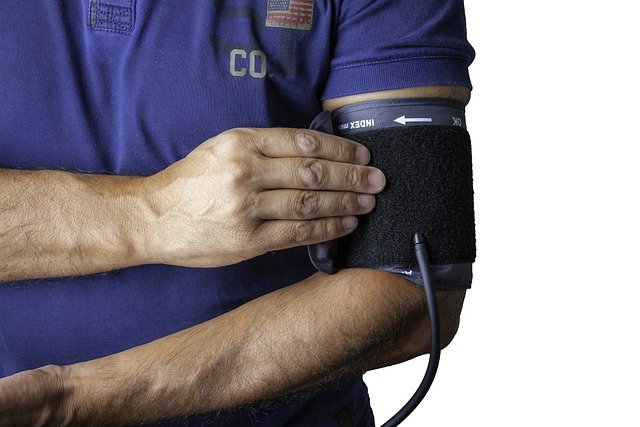Myelodysplastic Syndromes in the UK: Early Symptoms You Shouldn’t Overlook
Myelodysplastic syndromes (MDS) are a group of rare blood disorders that often go undiagnosed in the early stages due to subtle symptoms like fatigue, frequent infections, or easy bruising. In the UK, early detection is key and often begins with routine blood tests through your GP. This guide outlines what to watch for, how the NHS approaches MDS diagnosis and treatment, and when to seek referral to a haematology specialist. Raising awareness could lead to life-saving early interventions.

What Are the Early Symptoms of MDS in the UK?
The early symptoms of MDS in the UK can be subtle and easily attributed to other conditions or natural ageing processes. The most common initial signs include persistent fatigue that doesn’t improve with rest, unusual shortness of breath during routine activities, and frequent infections that take longer than usual to clear. Many patients also experience easy bruising, even from minor bumps, and notice that small cuts bleed for extended periods.
Other warning signs include pale skin or nail beds, dizziness or lightheadedness when standing, and unexplained weight loss. Some individuals report feeling generally unwell without being able to pinpoint specific symptoms. These signs occur because the bone marrow isn’t producing enough healthy red blood cells, white blood cells, or platelets, leading to anaemia, increased infection risk, and bleeding problems respectively.
When to See Your GP for Blood Abnormalities
Knowing when to see your GP for blood abnormalities is crucial for early detection of MDS. You should schedule an appointment if you experience persistent fatigue lasting more than two weeks, especially if it’s accompanied by other symptoms like frequent infections or unusual bleeding. Any unexplained bruising, particularly large bruises from minor impacts, warrants medical attention.
If you notice that minor cuts continue bleeding for an unusually long time, or if you develop frequent nosebleeds without an obvious cause, these could indicate low platelet counts. Additionally, recurring infections, such as frequent colds, chest infections, or slow-healing wounds, may signal compromised white blood cell function. Your GP will likely order blood tests to check your full blood count, which can reveal abnormalities in red blood cells, white blood cells, and platelets.
How the NHS Diagnoses Myelodysplasia
Understanding how the NHS diagnoses myelodysplasia begins with your GP conducting initial blood tests following concerning symptoms. If these tests reveal abnormal blood cell counts or unusual cell appearances, your GP will refer you to a haematologist, a blood disorder specialist. The NHS typically processes these referrals within two weeks under urgent pathways when MDS is suspected.
The diagnostic process usually involves several steps. A bone marrow biopsy is the definitive test, where a small sample of bone marrow is extracted and examined under a microscope. This procedure, performed under local anaesthetic, helps identify abnormal cell development characteristic of MDS. Additional tests may include cytogenetic analysis to check for chromosomal abnormalities and flow cytometry to analyse cell types more precisely. The entire diagnostic process typically takes 2-4 weeks from initial referral to final diagnosis.
Treatment Options Available Through the NHS
Treatment options available through the NHS for MDS vary depending on the specific type and severity of the condition. For lower-risk MDS, supportive care is often the primary approach, including regular blood transfusions to manage anaemia and medications to reduce iron overload from frequent transfusions. The NHS also provides growth factor injections to stimulate blood cell production and antibiotics to prevent infections.
For higher-risk cases, more intensive treatments are available through NHS specialist centres. These include hypomethylating agents like azacitidine, which can help restore normal cell function, and in suitable candidates, stem cell transplantation offers the potential for cure. The NHS also provides access to clinical trials investigating new treatments, giving patients opportunities to benefit from cutting-edge therapies. Treatment plans are always individualised, considering factors like age, overall health, and patient preferences.
Support Networks for Rare Blood Disorders
Support networks for rare blood disorders provide invaluable assistance to MDS patients and their families throughout the UK. MDS UK Patient Support Group offers comprehensive resources, including information booklets, online forums, and regular patient meetings across the country. They provide emotional support and practical advice from others who understand the challenges of living with MDS.
The Leukaemia & Lymphoma Research charity extends support to MDS patients, offering a free helpline staffed by specialist nurses who can answer questions about treatment and side effects. Many NHS hospitals also have dedicated haematology nurses who coordinate care and provide ongoing support. Local Maggie’s Centres, found near major cancer treatment hospitals, offer free practical and emotional support, including counselling services and benefits advice. Additionally, online communities and social media groups connect patients across the UK, sharing experiences and practical tips for managing daily life with MDS.
Living with MDS: Practical Considerations
Managing MDS involves adapting daily routines to accommodate the condition’s effects and treatment requirements. Regular medical appointments become part of life, with most patients requiring blood tests every few weeks and specialist consultations every few months. Many patients benefit from pacing activities to manage fatigue and avoiding crowded places during periods of low white blood cell counts to reduce infection risk.
Nutritional support plays an important role, with NHS dietitians providing guidance on maintaining adequate nutrition despite potential appetite changes or treatment side effects. Travel insurance can become more complex and expensive, so patients should declare their condition when purchasing policies. The NHS provides flu vaccinations and other preventive measures to reduce infection risks, and patients are encouraged to maintain good hygiene practices and seek prompt medical attention for any signs of infection.
This article is for informational purposes only and should not be considered medical advice. Please consult a qualified healthcare professional for personalized guidance and treatment.




